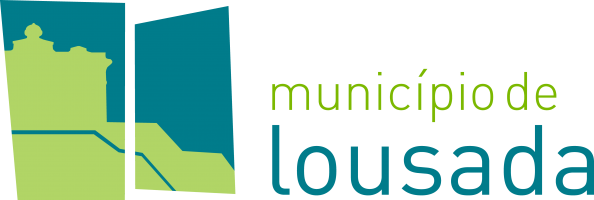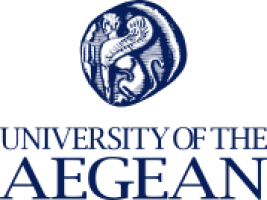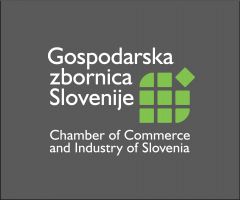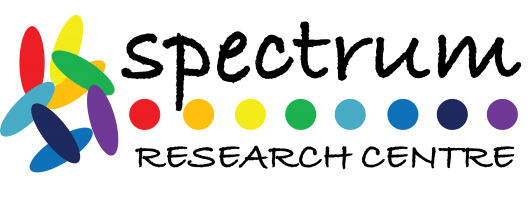- Home
- About
About
Overview
Global strategies to achieve a circular economy often overlook the contributions of smaller, locally-led enterprises and the need for market-based solutions specific to emerging economies. Most mainstream business models operate the “take, make and dispose of” way of production and consumption. This is reflected in the vast majority of entrepreneurship or business development training resources.
To preserve valuable natural resources for future generations and conserve Biodiversity, active support for a circular economy transition is required, and iVET and cVET has a pivotal role in supporting that transition.


Project Aim
The project aims to respond to the needs of iVET and cVET providers and members of the business community by providing targeted training to businesses on circular business models and VET trainers to support their continuous professional development in this domain.
Specific Objectives
The objectives are:
- VET provision will be enhanced in each region where the project is piloted to be more responsive to the needs of the business community and to support their transition to adopt circular business models.
- Business owners and entrepreneurs will be supported to adopt circular business principles and models to establish or reform their business practices.
- Local synergies between VET providers and businesses will be formed and sustained to ensure that innovation in VET is maintained and enhanced long after the project comes to an end.
- Evidence-based Policy Recommendations will be formed and presented to policymakers, ensuring the widespread sustainability and transfer of the ECO-CENT innovation ecosystem model to other regions and contexts.


Methodology
ECO-CENT will focus on the development of the Innovation Ecosystem for VET. Several key structures and frameworks need to be developed if the proposed ecosystems are to function appropriately and achieve the required policy and service impact at the local, national and transnational level. It is key to the project’s success that there is a clear ‘raison d’etre’ for managing and sustaining the multi-stakeholder forums that each partner will establish in their local area. The function of these forums is to foster cooperation and interaction between representatives of the business and VET communities.
Outputs
- Circular economy business modelling curriculum
- Skunk-Works Framework Facilitating An
Innovation Ecosystem for VET - In-service training programme
- ECO-CENT MOOC and Community of Practice
- Policy Paper

Partners

Municipality of Lousada is an institution of local public administration. It aims to pursuit the interests of the population in the territorial space of Lousada Council. The Municipality mission is to define guiding strategies and execute the resulting municipal policies towards sustainable development of the municipality, contributing to the increased competitiveness of it, in local, regional and national levels, through measures and programs in various areas of their competence, promoting the quality of life of its citizens and ensuring high standards of quality services.

The University of the Aegean was founded in 1984 aiming to introduce new approaches in higher education in Greece and worldwide and to promote regional development. Situated in 6 picturesque islands in the Aegean Archipelago, the University of the Aegean offers a unique natural, cultural and human environment for modern studies in the ancient cradle of knowledge.
From its earliest days, the University of the Aegean challenged the prevailing limitations of the academic endeavor in Greece, both in terms of educational approach and in terms of organizational structure. These challenges were soon transformed into advantages which have culminated in academic achievements and the rapid development of the institution.
In less than thirty years, the University of the Aegean has evolved into an international, research –oriented University offering 18 undergraduate (BA or BSc) and 40 postgraduate (MA or MSc) programmes in modern interdisciplinary thematic areas such as environment, communication systems, cultural informatics, product design, food and nutritional sciences, education design and Mediterranean studies. In addition, the University of the Aegean has established joined international postgraduate programs (i.e. in Biodiversity, Environmental Policy and Management, European Integration) as well as joined PhD degree programmes in a wide range of thematic areas.
The University of the Aegean consists of five Schools and 16 Departments that offer 17 undergraduate (BA or BSc) and 28 postgraduate (MA or MSc) programmes in modern interdisciplinary thematic areas.

The Chamber of Commerce and Industry of Slovenia (CCIS) is the largest independent, voluntary, non-profit association of companies in Slovenia. It was founded in 1851, and today boasts more than 5,200 member companies of all shapes and sizes, from different branches and regional backgrounds. Our member companies contribute about 50% of gross value added of the Slovenian economy, and generate 2/3 of sales in foreign markets.
The CCIS has the status of a representative Chamber of Commerce and Industry, and thus cooperates with the government in preparing legislation and policy strategies. It is a member of the Economic and Social Council of Slovenia as well as numerous government bodies, supporting them with its know- how and expertise. The CCIS is a signatory party of more than 20 branch-level collective agreements.
As one of the employers’ associations, it represents the interests of its members in their relations with the government and trade unions as regards the creation of good business conditions for economic development.
The CCIS is a member of the European Economic and Social Committee, Eurochambres, and the International Chamber of Commerce (ICC). It is also a member of A.I.E.C.E. (Association d’Institutes Economiques de Conjoncture Economique) that provides periodic economic forecasts for the economy. The branch associations and chambers are members of different international branch associations and other institutions.

The Bulgarian-Romanian Chamber of Commerce and Industry (BRCCI) is a private association of companies interested to develop their business in Bulgaria and/or Romania. The Chamber, together with our members and partners, forms an active platform for exchange of market information, business contacts and experience focused at one primary goal: helping our clients to achieve sustainable growth. BRCCI offers a full package of tailor-made services to all businesses interested to locate in, invest and/or export to one of the two fastest growing EU markets. We spot potential partners, we organize B2B events, we develop advocacy projects to improve the business climate in both countries. We also host a Labour Mobility Agency and a Professional Training Centre to assist businesses to find and train their staff. Our members are companies from Bulgaria, Romania, and other European countries. They are our top priority client group and enjoy a number of benefits. Becoming a member will open the door for you to a vast resource of experience and expertise which is not easily accessible otherwise. Our business community is extended by the partnerships we create with organizations which share similar interests and values.

CARDET (Center for the Advancement of Research & Development in Educational Technology) is an independent, non-profit, non-governmental, research and development organization based in Cyprus, with partners around the world. CARDET is one of the leading institutions in the Euro-Mediterranean region for research and development. Our team strives to offer the highest quality services to benefit society. The organization collaborates with local and international organizations, public and private bodies, and across diverse disciplines in designing solutions for local and global challenges in Asia, Europe, and the USA. The CARDET team has successfully completed more than 200 projects in more than 40 countries, reaching out to more than a million people. Several of our projects were supported by the European Commission, The Commonwealth of Learning, the United Nations Development Program, USAID, EuropeAid, Microsoft, Google, and governments around the world.

Spectrum Research Centre (SRC) was established in 2017 to support young academics to bring their research into action. SRC was founded specifically at the request of local social and academic researchers and post-graduate students, who identified a local need to develop a space where research hypotheses and findings can be validated through local actions. At the outset, SRC aimed to support academics throughout their research activities; however, as the company has grown, the aim is now also to provide academics with opportunities to give their research a European perspective. SRC draws on a wide range of expertise from diverse yet complementary disciplines like pedagogy and didactics, instructional design, social policy, e-learning, gamification, entrepreneurship, anthropology, social psychology, local history, gerontology and early childhood learning.

Skills Elevation FHB, Germany, was established in 2019 by a range of educators, environmentalists and academics, with the aim of providing alternative educational methodologies. FHB work extensively to provide support and education for marginalised groups, especially with regards to their social, emotional and cognitive developments. FHB have three main areas of focus; the development of new pedagogic approaches, the development of training materials for marginalised adults and conducting research into social psychology, business and education.
The European Commission's support for the production of this publication does not constitute an endorsement of the contents, which reflect the views only of the authors, and the Commission cannot be held responsible for any use which may be made of the information contained therein. [Project Number: 2021-1-PT01-KA220-VET-000033190]